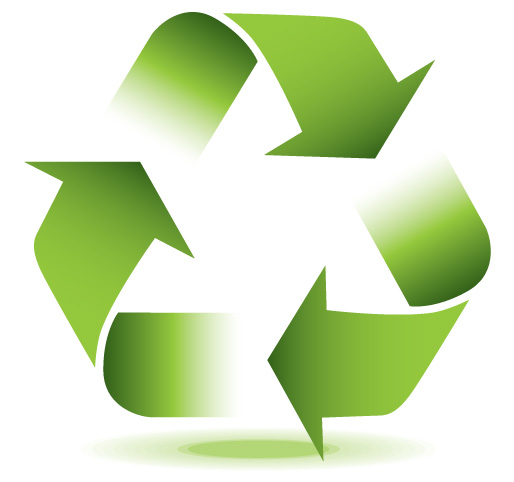Eco-Tip for 7-7-19
Plastics Still Collected in Curbside Recycling Despite Market Challenges
By David Goldstein, VCPWA, IWMD
Over the past few weeks, local environmental activists have been sharing through Facebook and forwarding through email an article first published by a British newspaper on June 21. In the inflammatory style of a controversial exposé, The Guardian newspaper titled its article, “Americans’ plastic recycling is dumped in landfills, investigation shows.”
The article by Erin McCormick and others quickly transitions from its exaggerated and alarming headline to more sober facts. Chinese restrictions on imported recyclables have reduced the marketability of some of the types of plastic collected from our curbside carts, and recycling-based manufacturers in the United States and other countries do not yet have the capacity to take China’s place.
The Guardian reports “only about half… of the plastic waste that America once exported is still being accepted by foreign markets in the wake of China’s ban.” Focusing on Los Angeles County, since it is the most populous in the nation, the article reports, “…recycling facilities are separating ‘mixed plastics’ from those plastics which still retain value – such as water bottles, laundry detergent bottles and milk jugs – and, contrary to what customers expect, sending them directly to a landfill or incinerator.”
Indeed, even in Ventura County, where recycling programs are well organized and sorting centers have a long and successful record of maximizing recycling, local recyclers confirm plastics labeled with numbers 3 through 7 in the chasing arrows recycling triangle symbol are difficult to market. Furthermore, new Chinese rules have not only reduced plastic recycling, but also cut opportunities for recycling some grades of mixed paper.
Alasdair Coyne, an environmental activist in the Ojai Valley, is one of the local leaders who read the article and wondered how it applies to Ventura County. He asked me why all the local recycling programs still list plastics numbered 1 through 7 as being accepted in curbside recycling carts if plastics 3 through 7 are in fact so hard to recycle. “Are you telling us we are living in a recycling bubble, where everything is different for Ventura County?” he asked, recalling a time when the Ojai Valley really was a bubble of recycling opportunity. Through the 1980s, while nearly everyone else in the country had to drive to a drop off center in order to recycle, Coyne and a volunteer group called Recycling Environmental Action Program coordinated once per month “REAP Day” events, in which volunteers staffing ten loaned vans or trucks provided curbside recycling for newspaper, with proceeds benefitting charity.
Now, with recycling more comprehensive and convenient, we have two good reasons to keep our local curbside recycling lists the same as they were before the 2017 change in China’s policies. First, markets for materials are improving, and it would be confusing to customers if recycling coordinators take materials off the list and then put them back on
each time markets change. Second, our continued collection of these materials helps us recruit companies and develop domestic businesses capable of using the materials to make new products.
In a 1959 speech, John F. Kennedy mistakenly said the Chinese written word for “crisis” contains the character for “opportunity,” and this later become a popular misconception, according to workplacepsychology.net. Perhaps the recycling crisis provoked by changes in Chinese import policies will create real opportunities for new American businesses. The Ventura County Recycling Market Development Zone – www.vcpublicworks.org/rmdz – provides low-interest loans and other benefits to local companies making products from discards, and, as administrator of this zone, I recently worked with the Economic Development Collaborative of Ventura County and Oxnard economic development staff to attract to Oxnard a company currently using mixed plastics in Canada to make composite building materials and synthetic energy. The Governor’s office of Economic and Business Development said the company, ReGen Process Holding, wants to build a new factory and is considering Arizona, California, and Washington. Ventura County’s land costs are higher, and perhaps we have other disadvantages compared to those competing areas, but our easy access to recyclables is a major point in our favor. Not only could we provide the company with a lot of plastic collected from our curbside recycling programs, but we also have thousands of tons per year of agricultural film plastic ready to be recycled. A representative from the company is coming later this month to look at potential sites for a new recycling factory.
Not everyone agrees we should keep recycling lists unchanged. Mark Murray, Executive Director of Californians Against Waste, at a recent conference organized by the California Department of Resource Recycling and Recovery – CalRecycle, told city and county recycling coordinators, “By keeping these items on your recycling list, you are giving a benefit to the packaging industry that they don’t deserve.” If everyone thinks these items are easily recyclable, they are less likely to avoid packaging, Murray maintained.
Even with diminished opportunities for recycling, there are some things individuals can do to increase the likelihood their discards will be used by industries in place of mined or milled virgin resources. Reduce contamination of recyclables. Examples of contamination are Styrofoam (polystyrene), bubble wrap, straws, disposable utensils, and plastic bags. Another important guideline is to keep recyclables loose, rather than bagged. Not only are the bags themselves contaminants, bags make recyclables less accessible to sorters and reduce the ability of mechanized sorting equipment to work properly. Bags should instead be dropped off in recycling collection boxes at large retailers providing plastic bags.
No one is expecting consumers to carefully wash each item before placing it in recycling carts, but knocking out or scraping away as much residue as possible is now more important for recycling marketability. It has always been a desired practice in order to reduce smells, messes, and burdens on workers at recycling centers.
To improve prospects for marketing materials, local sorting centers have slowed recycling sorting lines to ensure adequate time for removing contaminants, added pickers, and found buyers outside China, keeping as much as possible of our recyclables recyclable during a period of diminished markets.






